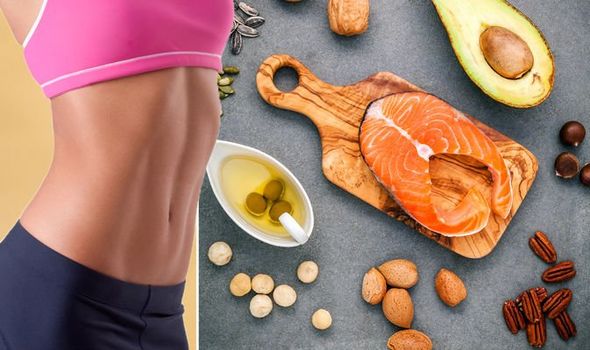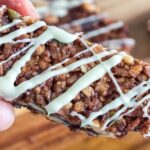The ketogenic diet, or simply keto, is a low-carb, high-fat diet that has gained immense popularity in recent years. The goal of the keto diet is to induce a state of ketosis in the body, which is a metabolic state where the body burns fat for energy instead of carbohydrates. This diet has been shown to have numerous health benefits, including weight loss, improved blood sugar control, and increased energy levels.

When following the keto diet, it’s important to know what foods are allowed and what foods should be avoided. In this article, we will discuss what keto foods you can eat, important notes and points to keep in mind, and some frequently asked questions about the diet. We will also examine some pros and cons of the keto diet to help you determine whether it’s right for you.
Important Notes:
Keep your carbohydrate intake low: The key to the keto diet is keeping your carbohydrate intake low, usually below 50 grams per day. This allows your body to enter into a state of ketosis where it burns fat for energy instead of carbohydrates.
Focus on healthy fats: While the keto diet is high in fat, it’s important to focus on healthy fats such as avocado, nuts, and seeds. Avoid unhealthy fats such as trans fats and processed oils.
Adequate protein intake: It’s important to ensure you’re getting enough protein while on the keto diet to maintain muscle mass and support bodily functions.
Be mindful of your electrolyte levels: The keto diet can lead to an imbalance in electrolytes such as sodium, potassium, and magnesium. Be sure to consume adequate amounts of these minerals through food or supplements.
Consult with a healthcare provider: Before starting the keto diet, it’s important to consult with a healthcare provider, especially if you have any underlying health conditions or are taking medications.

FAQs:
What foods should I avoid on the keto diet?
On the keto diet, it’s important to avoid foods that are high in carbohydrates such as grains, sugar, and starchy vegetables. You should also avoid processed foods, trans fats, and processed oils.
Can I eat fruit on the keto diet?
While fruit is generally considered healthy, most fruits are high in carbohydrates and therefore not allowed on the keto diet. However, small portions of berries such as strawberries and raspberries can be consumed in moderation.
Can I eat dairy on the keto diet?
Dairy is allowed on the keto diet, but it’s important to choose full-fat dairy products that are low in carbohydrates. Examples include cheese, butter, and heavy cream.
How much protein should I consume on the keto diet?
The amount of protein you should consume on the keto diet depends on your individual needs and goals. Generally, it’s recommended to consume 0.6-1 gram of protein per pound of body weight.
How long does it take to enter into ketosis?
It typically takes 2-4 days of following a strict low-carbohydrate diet to enter into ketosis. However, this can vary depending on individual factors such as metabolism and activity level.

Pro’s:
Weight loss: The keto diet has been shown to be effective for weight loss, as it can lead to a reduction in appetite and an increase in fat burning.
Improved blood sugar control: The keto diet has been shown to improve blood sugar control in people with type 2 diabetes, as it reduces insulin levels and improves insulin sensitivity.
Increased energy levels: By burning fat for energy instead of carbohydrates, the keto diet can lead to increased energy levels and reduced fatigue.
Reduced inflammation: The keto diet has been shown to reduce inflammation in the body, which is linked to numerous chronic diseases.
Improved cognitive function: The keto diet has been shown to improve cognitive function, as the brain can use ketones as an alternative fuel source.

Con’s:
Difficult to follow: The keto diet can be difficult to follow for some people, as it requires strict adherence to a low-carbohydrate, high-fat diet.
Nutrient deficiencies: The keto diet can lead to nutrient deficiencies if not properly planned, as many foods high in vitamins and minerals are restricted on the diet.
Potential for muscle loss: If protein intake is not adequate on the keto diet, there is a risk of muscle loss.
Increased risk of kidney stones: The high fat and protein content of the keto diet can increase the risk of kidney stones in some people.
Possible negative effects on cholesterol levels: Some studies have shown that the keto diet can lead to increases in LDL cholesterol levels, which is a risk factor for heart disease.

Final Verdict:
The keto diet can be an effective tool for weight loss, improved blood sugar control, increased energy levels, and reduced inflammation. However, it’s important to consider the potential drawbacks of the diet, such as nutrient deficiencies and the potential for negative effects on cholesterol levels. Before starting the keto diet, it’s important to consult with a healthcare provider to determine if it’s appropriate for you and to ensure that you are meeting your nutrient needs while on the diet. If you do decide to try the keto diet, focus on healthy fats, adequate protein intake, and nutrient-dense foods to ensure that you are supporting your overall health and wellbeing.
Keto Foods: What You Need to Know Before Starting the Diet












No Comment! Be the first one.